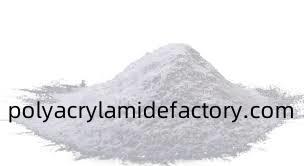Hengfeng Solutions For High-Performance Separation Of Solid And Liquid

In modern industrial processes, the efficiency of Separation Of Solid And Liquid defines both productivity and environmental responsibility. It is a process that combines chemistry, engineering, and careful operational control to ensure clean outputs, resource conservation, and stable operations. Hengfeng provides innovative solutions that support industrial sectors in achieving optimized separation while maintaining ecological standards.
Effective separation involves more than mechanical filtration; it requires a deep understanding of fluid dynamics, particle interactions, and chemical compatibility. When properly managed, solids can be effectively removed from liquids, reducing waste, preventing contamination, and ensuring that downstream operations remain smooth. This approach benefits industries ranging from water treatment to chemical production and food processing, where maintaining product quality and process stability is critical.
Technological advancements have introduced systems that not only perform the separation efficiently but also adapt to varying operational conditions. Automated controls, high-precision sensors, and robust chemical agents work together to optimize the process. Industries now recognize that integrating intelligent systems with high-quality materials is key to achieving consistent results without excessive energy consumption or maintenance needs.
The environmental impact of solid-liquid separation cannot be understated. By efficiently removing impurities and managing sludge, operations contribute to cleaner effluents and reduced disposal challenges. Companies investing in high-performance systems gain reputational advantages, demonstrating commitment to sustainable practices while improving operational safety.
A strategic approach to separation also reduces downtime and operational costs. Well-designed equipment, combined with reliable chemical agents, ensures that systems maintain high efficiency over extended periods. Engineers and operators benefit from predictable performance, allowing them to focus on innovation and process optimization rather than emergency interventions.
In addition to industrial facilities, municipal water treatment plants also benefit from optimized separation. By implementing precise separation strategies, cities ensure safer, cleaner water for communities, conserving resources and minimizing environmental impact. The knowledge applied in industrial settings directly supports public health and environmental sustainability.
In conclusion, achieving optimal separation of solids and liquids is not just a technical requirement but a strategic advantage. It reflects a balance between productivity, sustainability, and operational reliability. For industries seeking advanced solutions that combine efficiency with environmental stewardship, visit https://www.polyacrylamidefactory.com/product/ and explore technologies designed to meet modern industrial demands.
- Art
- Causes
- Crafts
- Dance
- Drinks
- Film
- Fitness
- Food
- Παιχνίδια
- Gardening
- Health
- Κεντρική Σελίδα
- Literature
- Music
- Networking
- άλλο
- Party
- Religion
- Shopping
- Sports
- Theater
- Wellness


